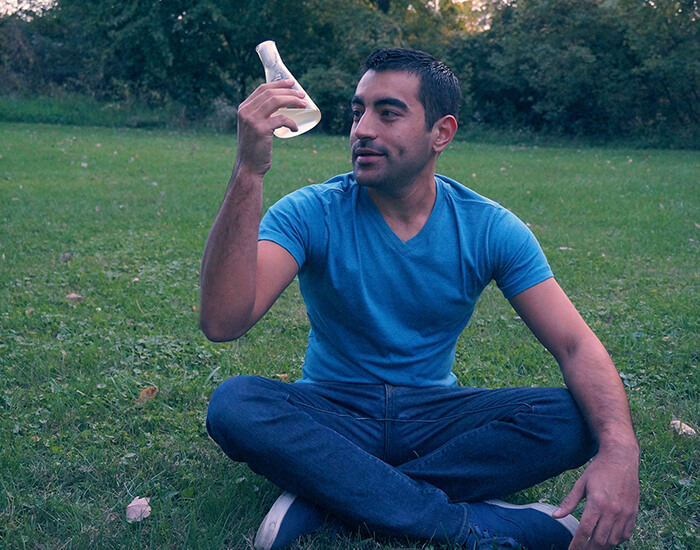Keck Graduate Institute (KGI) alumnus Pierre Blosse was recently announced as one of three winners selected by NASA for its Mars Challenge on Earth Independence contest. Having graduated from the Master of Bioscience (MBS) program in 2010, Pierre has continued to make science an important part of his life.
The challenge was part of NASA's larger goal to journey to Mars in the 2030s and emphasized the importance of becoming less reliant on Earth and establishing Earth independence. For this particular contest, NASA invited the public to submit their ideas on how to develop the elements necessary to establish a continuous human presence on Mars. Participants were encouraged to think out of the box and construct innovative and creative processes that can lead to a permanent human presence in deep space. In total, 771 submissions were received. Each was evaluated on relevance, creativity, simplicity, resource efficiency, feasibility, comprehensiveness, and scalability. NASA selected only three winners, each of whom was awarded a $5,000 prize. However, the biggest prize of all may be getting to carry the title of NASA challenge winner throughout their lives. As part of the $5,000 award, Pierre gave NASA a non-exclusive license to the research he submitted.
The official title of Pierre's 21-page technical paper is "Starch from the Micro-Algae Chlorella as the Main Food Source for a Self-sustaining Martian Colony." In preparing for the challenge, Blosse spent five weeks researching how starch from micro-algae chlorella could be used as the main food source for astronauts on Mars. By growing micro-algae chlorella in a photobioreactor with sulfur-limited conditions, the chlorella could grow quickly and accumulate starch in itself. Purifying the starch helps it become like flour, allowing astronauts to make things like bread, cake, and pasta.
In describing his proposal, Pierre explained: "Chlorella grows much faster than conventional crops, and in the right conditions, more than 60 percent of its dry weight is in the form of starch that is similar to wheat starch. By purifying the algae, a flour similar to wheat flour could be made. I calculated that a bioreactor volume as small as 1m3 would be enough to feed six astronauts, a much smaller volume than other proposals to build greenhouses on the planet."
With the success of winning this challenge, Pierre plans to move toward phase two and hopes to create a proof of concept of his idea to show he can create an edible flour from the algae.
"Using equipment and support from Iowa State University, I will grow the algae, purify its starch to create a flour, then use it to bake bread," he said. "If I'm successful, I would like to build a photobioreactor to grow the algae with high productivity. AT KGI I took most of the bioprocessing courses offered by the Amgen Bioprocessing Center (ABC). The Center has world-class expertise in scale up of complex biological processes. I would like to collaborate with the Center to further develop my bioreactor."
Pierre has always been interested in space and science and is glad he has been able to contribute his ideas to the Mars mission NASA plans to make in the next two decades. Explaining how KGI helped cultivate his curiosity into a career, Pierre said: "I didn't have much of an engineering background prior to KGI, but working on real-life engineering projects while there made all the difference. As a student at KGI, I was able to design and build an automated seed sorter for Syngenta in my first year and a microfluidic PCR for Pioneer in my second year. Both were among several industry projects that taught me a lot about engineering and gave me confidence that I could create a design for the NASA Mars Challenge and start building a proof of concept."
Pierre attended the University of California, Berkeley, where he studied genetics and plant biology, and earned his Master of Bioscience (MBS) at Keck Graduate Institute in 2010. Currently, he works at DuPont Pioneer as a compliance manager.
Learn more about Mars Challenge on Achieving Earth Independence.
